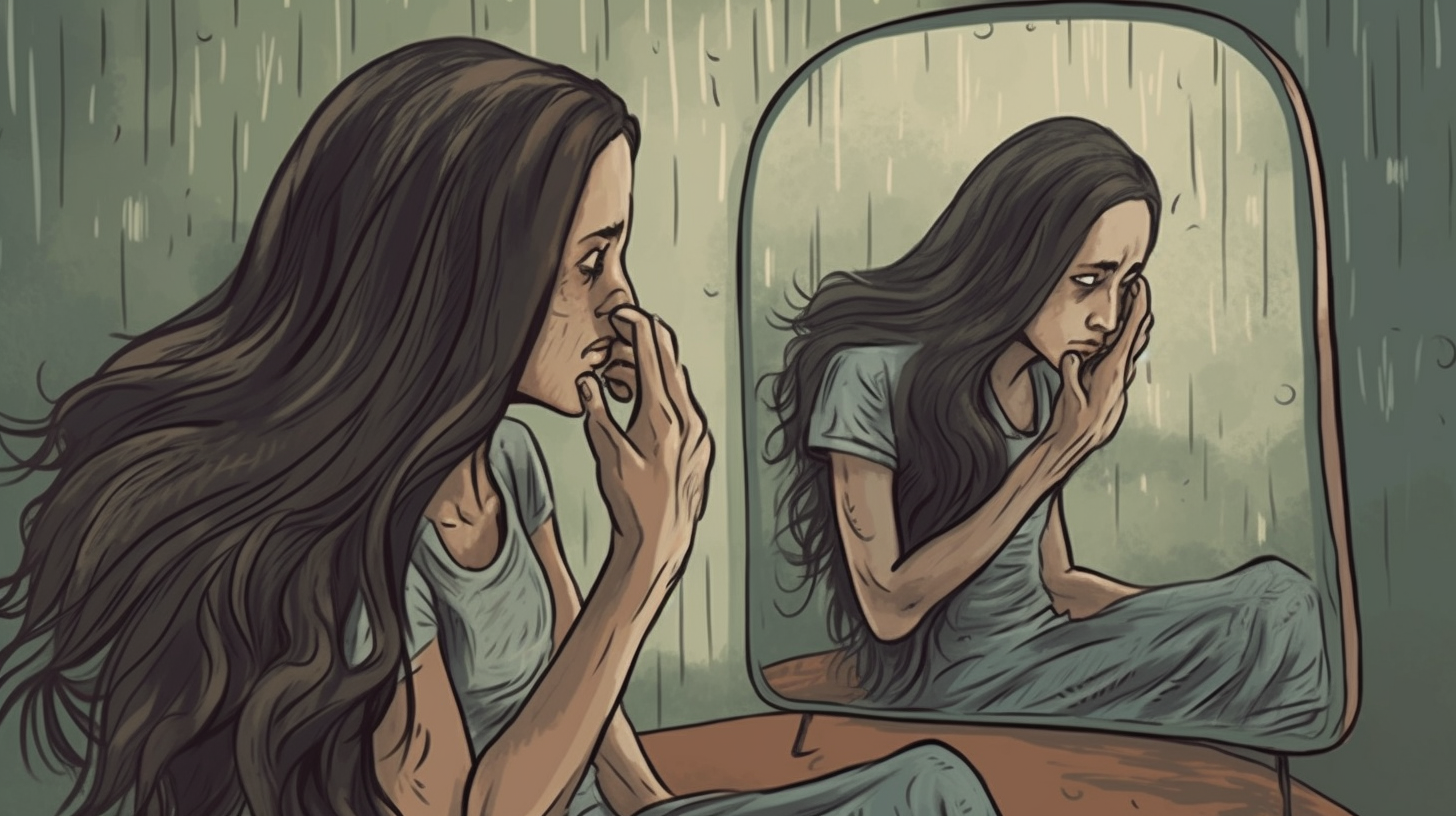How Your Diet May Impact Oily Hair and What You Can Do About It
Oily hair can be frustrating to deal with, and while it’s often attributed to genetics or environmental factors, your diet may also play a significant role. The food you eat affects your entire body, including your scalp and hair health. In this blog post, we’ll explore how your diet may impact oily hair and what you can do about it.
The Relationship Between Diet and Oily Hair
Firstly, let’s discuss how diet impacts oily hair. The sebaceous glands in your scalp produce sebum, which is an oil that lubricates and protects the skin on your scalp and hair. However, certain foods can stimulate these glands to produce more sebum than necessary, leading to an oily scalp and greasy hair.
A diet high in refined carbohydrates such as white bread, pasta, sugar, and sweetened beverages can trigger an insulin spike that signals the sebaceous glands to produce more sebum. Additionally, consuming too much dairy products like cheese and milk may also contribute to excess sebum production.
On the other hand, consuming a balanced diet rich in vitamins and minerals such as omega-3 fatty acids found in fish like salmon or nuts might help combat oily hair. A healthy diet that includes fruits, vegetables, whole grains, lean proteins like chicken or tofu can help regulate hormone levels that could be contributing to excess oil production.
How Your Diet Can Affect Your Hair Health
It’s essential to understand that what you eat affects not only your overall health but also the health of your hair. For instance:
- Vitamins: A deficiency of certain vitamins such as vitamin D or B12 can result in brittle or thinning hair.
- Protein: Protein is a building block for hair, so a lack of it can lead to weak, brittle, and slow-growing hair.
- Iron: Iron deficiency can cause anemia, which can result in hair loss.
- Zinc: Zinc is essential for cell growth and repair, including the cells that make up your hair follicles. A lack of zinc can lead to hair loss or slow growth.
By maintaining a balanced diet that includes these nutrients, you can keep your hair healthy and reduce the occurrence of oily scalp or greasy hair.
Food Groups That Promote or Inhibit Excessive Sebum Secretion
While certain foods may stimulate sebum production, others may help inhibit it. Here are some food groups to consider:
Foods That Promote Excessive Sebum Secretion
- Sugar and sugary drinks
- Dairy products like cheese and milk
- Fried foods and fast food
- Processed snacks like chips and crackers
Foods That Inhibit Excessive Sebum Secretion
- Foods high in antioxidants like berries, leafy greens, and citrus fruits
- Foods rich in omega-3 fatty acids like salmon, tuna, mackerel, walnuts, chia seeds
- Foods high in vitamin A like sweet potatoes and carrots
- Foods rich in vitamin C like bell peppers and broccoli
Incorporating these foods into your diet can help balance sebum production on your scalp while providing other essential nutrients for healthy hair.
Oily Hair Prevention Tips: What You Can Do About It?
If you’re experiencing oily hair, there are several things you can do to help prevent it:
Wash Your Hair Regularly
Washing your hair regularly can help remove excess oil and dirt from your scalp. However, be careful not to over-wash your hair as it may lead to a dry and irritated scalp, which can trigger even more oil production.
Avoid Hot Showers
Hot water can strip the natural oils from your scalp and hair, leading to dryness that can cause your sebaceous glands to produce more oil. Try washing your hair with lukewarm water instead.
Use Gentle Hair Products
Harsh shampoos and conditioners may strip the natural oils from your scalp, causing it to produce even more oil. Opt for gentle products that are specifically formulated for oily hair or use a clarifying shampoo once a week to remove excess oil buildup.
Avoid Touching Your Hair Too Often
Touching your hair too often can transfer oils from your hands onto your scalp, causing it to produce more oil. Try to keep your hands away from your hair as much as possible.
Oily Hair Treatments: What You Can Do About It?
If you’re struggling with oily hair despite following a balanced diet and proper hair care routines, there are treatments available:
Scalp Exfoliation
Scalp exfoliation involves using a mild exfoliating scrub or brush to remove dead skin cells and excess oil from the scalp. This treatment can help balance sebum production on the scalp while promoting healthy hair growth.
Natural Remedies
Natural remedies like tea tree oil, apple cider vinegar, and aloe vera can help regulate sebum production on the scalp. These remedies have anti-inflammatory properties that help soothe and calm the scalp while removing excess oil buildup.
Professional Treatments
If your oily hair is severe or persistent, consider visiting a dermatologist or trichologist. They can provide professional treatments like hair masks, laser therapy, or prescription medication to help balance sebum production on your scalp.
Conclusion
Your diet plays a significant role in your overall health, including the health of your hair. By consuming a balanced diet rich in nutrients and avoiding foods that stimulate excessive sebum production, you can keep your scalp healthy and reduce the occurrence of oily hair. Additionally, proper hair care routines like regular washing with gentle products and avoiding hot showers can also help prevent oily hair. If you’re struggling with persistent oily hair, consider trying natural remedies or seeking professional treatment from a dermatologist or trichologist.



